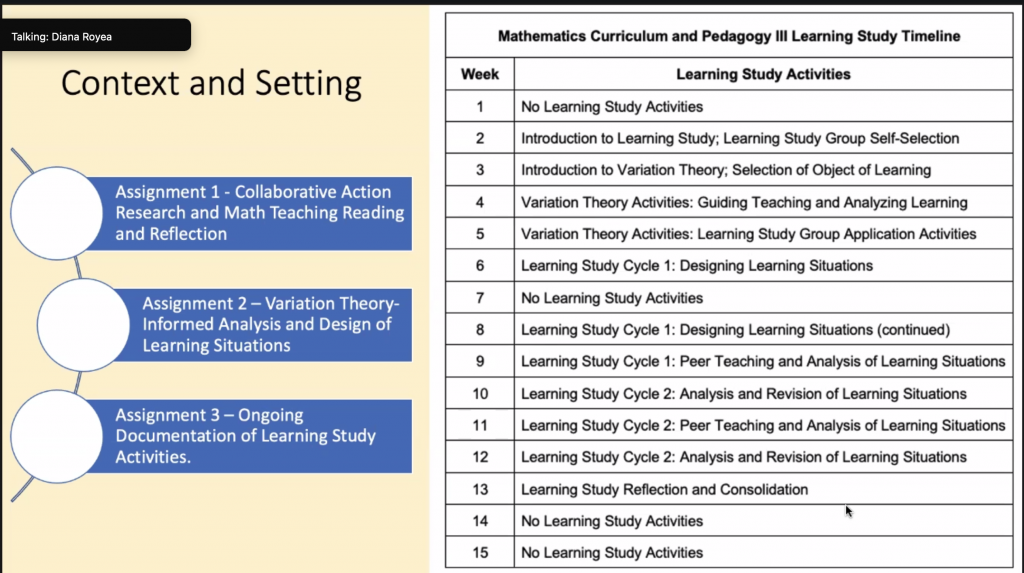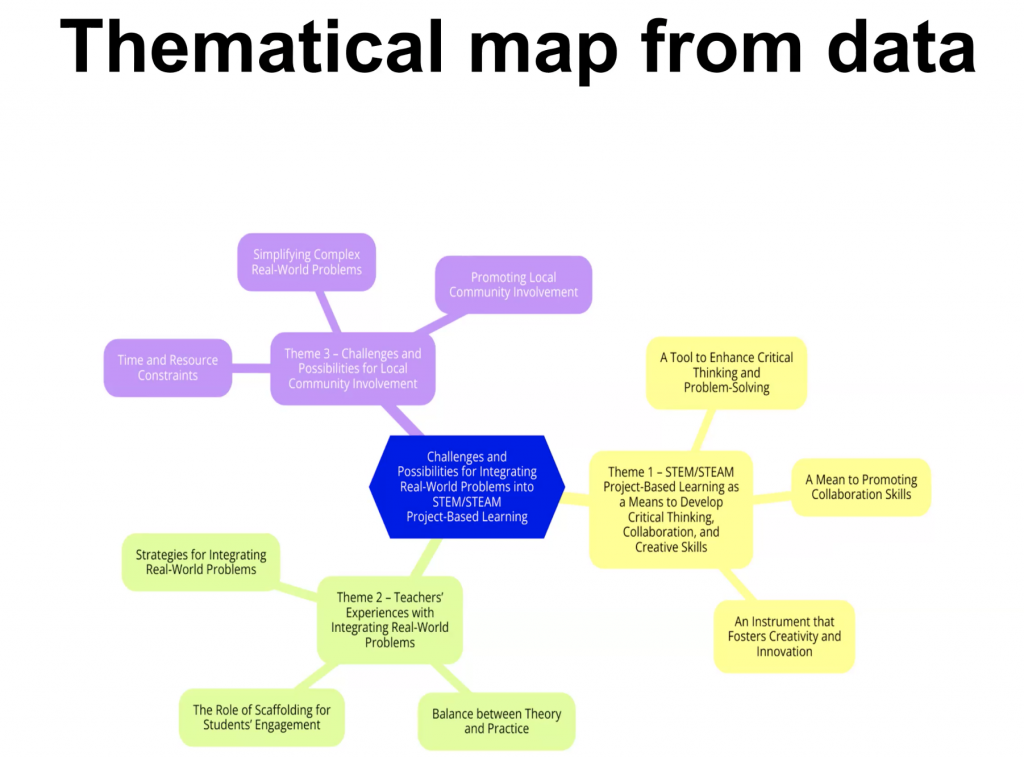Summary of SyMETRI Meeting: November 26th, 2024 by Stephanie La France
Presenter/Guest Speaker: Diana Royea from Department of Curriculum and Pedagogy, University of British Columbia
Date: November 26th, 2024
Host: Dr. Cynthia Nicol
Today, Diana Royea did a mock presentation for her doctoral defence. She explained that her research was inspired by noticing that many teachers (PSTs) were finding their programs and coursework theory heavy with few opportunities to plan math lessons. She wanted to support teachers in connecting theory and practice in mathematics.
Diana used Giorgi’s descriptive phenomenology as a methodology to explore the experiences of PSTs. She enhanced her understanding of students’ experiences by combining Activity Theory and Professional Theorizing to complement the phenomenological study. These were her research questions:
- What are PST’s lived experiences of participating in learning study as part of their learning to teach math coursework?
- Themes from Q1: PST understanding of learning study; PST experience Studenting; PST collaboration
- How do PST elementary math teachers understand and use variation theory to inform their pedagogical decisions while collaboratively planning learning situations?
- Themes from Q2: understanding theory in relation to practice, developing pedagogical content knowledge (PCK)
Through her presentation, Diana discussed how she used Learning Study as a collaborative action research model. Learning Study uses a theory of learning to inform pedagogical decision making and student learning, and Diana decided on Variation Theory – a learning theory that she clarified in the questioning period as a theory of learning stating that students’ conceptual understanding gains sophistication through small variations. She used the example of mathematics where if students are developing a deeper understanding of the equal sign, the format of the equations they are engaging with would be varied.
Thirty-eight student teachers participated in the Learning study which involved labs; however, only 7 individual students and 2 groups of 5-6 students participated in the research as participants. Diana showcased how her project and the learning study enabled students to have a more meaningful connection with theory—such a meaningful finding for supporting PSTs in their journey to developing praxis! Additionally, Diana’s study is only the 3rd study in Canada to focus on Learning Study and teacher education! Thanks Diana!
Here are some slides from Diana’s presentation:
Bio
Diana Royea is a doctoral student in EDCP and is preparing to defend her dissertation on December 3, 2024. Her committee includes Dr. Cynthia Nicol (supervisor), and committee members Dr. Ann Anderson, Dr. Tony Clarke and the late Dr. Carl Leggo.






